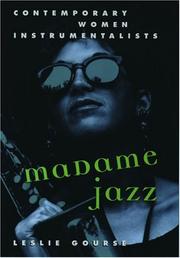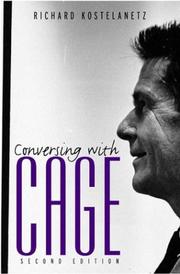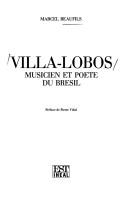| Listing 1 - 10 of 15 | << page >> |
Sort by
|
Book
ISBN: 1317113594 1315589583 1409452107 9781409452102 9781409452096 1409452093 9781317113591 9781315589589 9781317113577 9781138247871 1317113586 Year: 2014 Publisher: Farnham : Routledge,
Abstract | Keywords | Export | Availability | Bookmark
 Loading...
Loading...Choose an application
- Reference Manager
- EndNote
- RefWorks (Direct export to RefWorks)
Alison Hood combines significant aspects of current analytical approaches and applies that unique synthetic method to selected works by Chopin. The specific combination of five aspects distinguishes Hood's method from previous analytical approaches. These five methods are attention to the rhythms created by pitch events on all structural levels; a detailed accounting of the musical surface; 'strict use' of analytical notation; a continual concern with 'strategies' or 'premises'; and an exploration of how recorded performances might be viewed in terms of analytical decisions, or might even shap
Piano music --- Analysis, appreciation. --- Chopin, Frédéric, --- Chopin, Frédéric --- Interpretatie --- Muziekanalyses --- Componisten --- Polen --- 19e eeuw
Book
ISBN: 1299483585 0300154313 9780300154313 9781299483583 9780300154306 0300154305 030020535X 9780300205350 Year: 2013 Publisher: New Haven, Conn. Yale University Press
Abstract | Keywords | Export | Availability | Bookmark
 Loading...
Loading...Choose an application
- Reference Manager
- EndNote
- RefWorks (Direct export to RefWorks)
With National Socialism's arrival in Germany in 1933, Jews dominated music more than virtually any other sector, making it the most important cultural front in the Nazi fight for German identity. This groundbreaking book looks at the Jewish composers and musicians banned by the Third Reich and the consequences for music throughout the rest of the twentieth century. Because Jewish musicians and composers were, by 1933, the principal conveyors of Germany's historic traditions and the ideals of German culture, the isolation, exile and persecution of Jewish musicians by the Nazis became an act of musical self-mutilation. Michael Haas looks at the actual contribution of Jewish composers in Germany and Austria before 1933, at their increasingly precarious position in Nazi Europe, their forced emigration before and during the war, their ambivalent relationships with their countries of refuge, such as Britain and the United States and their contributions within the radically changed post-war music environment.
Jewish composers. --- Composers --- Composers, Jewish --- Music --- nationaal-socialisme --- joodse muziek --- Jodendom --- muziekgeschiedenis --- componisten --- anno 1900-1999 --- Jewish composers.. --- Composers -- Germany.
Periodical
ISSN: 06070252 Year: 1964 Publisher: Edgewater, Md. : Carlsbad, CA : Minneapolis, MN : Viola da Gamba Society of America, Inc., Viola da Gamba Society of America Viola da Gamba Society of America
Abstract | Keywords | Export | Availability | Bookmark
 Loading...
Loading...Choose an application
- Reference Manager
- EndNote
- RefWorks (Direct export to RefWorks)
Viola da gamba --- Viola da gamba's. --- Muziekwerken. --- Componisten. --- Uitvoeringspraktijk. --- Viola da gamba. --- Bass viol --- Gamba (Viola da gamba) --- Viol, Bass --- Viols --- Music --- Viole de gambe

ISBN: 1280452838 9786610452835 1423741269 0195355555 1602561311 9781423741268 9781280452833 0195106474 0195086961 9780195106473 0195106474 Year: 1996 Publisher: New York Oxford University Press
Abstract | Keywords | Export | Availability | Bookmark
 Loading...
Loading...Choose an application
- Reference Manager
- EndNote
- RefWorks (Direct export to RefWorks)
Nadine Jansen, a flugelhornist and pianist, remembers a night in the 1940s when a man came out of the audience as she was playing both instruments. "I hate to see a woman do that," he explained as he hit the end of her horn, nearly chipping her tooth. Half a century later, a big band named Diva made its debut in New York on March 30, 1993, with Melissa Slocum on bass, Sue Terry on alto sax, Lolly Bienenfeld on trombone, Sherrie Maricle on drums, and a host of other first rate instrumentalists. The band made such a good impression that it was immediately booked to play at Carnegie Hall the following year. For those who had yet to notice, Diva signaled the emergence of women musicians as a significant force in jazz. Madame Jazz is a fascinating invitation to the inside world of women in jazz. Ranging primarily from the late 1970s to today's vanguard of performance jazz in New York City and on the West Coast, it chronicles a crucial time of transition as women make the leap from novelty acts regarded as second class citizens to sought-out professionals admired and hired for their consummate musicianship. Author Leslie Gourse surveys the scene in the jazz clubs, the concert halls, the festivals, and the recording studios from the musicians' point of view. She finds exciting progress on all fronts, but also lingering discrimination. The growing success of women instrumentalists has been a long time in coming, she writes. Long after women became accepted as writers and, to a lesser extent, as visual artists, women in music--classical, pop, or jazz--faced the nearly insuperable barrier of chauvinism and the still insidious force of tradition and habit that keeps most men performing with the musicians they have always worked with, other men. Gourse provides dozens of captivating no-holds-barred interviews with both rising stars and seasoned veterans. Here are up-and-coming pianists Renee Rosnes and Rachel Z., trumpeter Rebecca Coupe Frank, saxophonist Virginia Mayhew, bassist Tracy Wormworth, and drummer Terri Lynne Carrington, and enduring legends Dorothy Donegan, Marian McParland and Shirley Horne. Here, as well, are conversations with three pioneering business women: agent and producer Helen Keane, manager Linda Goldstein, and festival and concert producer Cobi Narita. All of the women speak insightfully about their inspiration and their commitment to pursuing the music they love. They are also frank about the realities of life on the road, and the extra dues women musicians pay in a tough and competitive field where everybody pays dues. A separate chapter offers a closer look at women musicians and the continual stress confronting those who would combine love, marriage, and/or motherhood with a life in music. Madame Jazz is about the history that women jazz instrumentalists are making now, as well as an inspiring preview of the even brighter days ahead. It concludes with Frankie Nemko's lively evaluation of the West Coast jazz scene, and appends the most comprehensive list ever assembled of women currently playing instruments professionally..
Women jazz musicians --- Jazz --- Jazz musicians --- Women musicians --- History and criticism. --- 815 --- History and criticism --- Jazz en lichte muziek - Monografieën componisten en uitvoerders

ISBN: 1135949700 1135949719 0415937914 1280062193 0203427033 9780203427033 020343899X 9780203438992 9780415937924 0415937922 9780415937917 0415937922 0879101008 0879101040 9786610062195 6610062196 9781135949662 9781135949709 9781135949716 0711918465 9780711918467 Year: 2003 Publisher: New York Routledge
Abstract | Keywords | Export | Availability | Bookmark
 Loading...
Loading...Choose an application
- Reference Manager
- EndNote
- RefWorks (Direct export to RefWorks)
Conversing with Cage draws on over 150 interviews with John Cage conducted over four decades to draw a full picture of his life and art. Filled with the witty aphorisms that have made Cage as famous as an esthetic philosopher as a composer, the book offers both an introduction to Cage's way of thinking and a rich gathering of his many thoughts on art, life, and music. John Cage is perhaps this century's most radical classical composer. From his famous ""silent"" piece (4'33"") to his proclamation that ""all sound is music,"" Cage stretched the aesthetic boundaries of what could be performed i
Composers --- Cage, John --- C., J. --- Cage, John Milton, --- J. C. --- Keidž, Džon --- Keĭdzh, Dzhon --- Kēji, Jon --- 78.07 --- Musici, componisten, zangers --- Cage, John.
Book
ISBN: 9461662378 9789461662378 9789462701236 9462701237 Year: 2017 Publisher: Leuven Leuven University Press
Abstract | Keywords | Export | Availability | Bookmark
 Loading...
Loading...Choose an application
- Reference Manager
- EndNote
- RefWorks (Direct export to RefWorks)
Wolfgang Rihm (b. Karlsruhe, 1952) is the most performed living German composer. With his personal, expressive, and versatile music, he became the most prominent representative of his generation. His individual approach to music was established in the 1980s and he continues to explore and enlarge his original concepts today. His 1980s work is at the core of this book, more specifically his instrumental music: the Chiffre cycle and the string quartets. Thinking about Rihm includes reflecting on his interest in philosophy, his relation to fine arts, his awareness of principles found in nature, and his references to important composers from the past. His music is embedded in the past and the actuality in modernism and postmodernism. Notwithstanding Rihm's generosity in essays and introductions to his works, many aspects of the 'inner sound' of his music stay an elusive, ungraspable 'chiffre': a challenge for the analyst.
Composers --- Songwriters --- Musicians --- Rihm, Wolfgang --- Rihm, W. --- Criticism and interpretation. --- 526 --- Monografieën componisten en uitvoerders --- Music --- Germany --- 20th century --- History and criticism
Book
ISBN: 9031708267 Year: 1990 Publisher: Averbode Altiora
Abstract | Keywords | Export | Availability | Bookmark
 Loading...
Loading...Choose an application
- Reference Manager
- EndNote
- RefWorks (Direct export to RefWorks)
44 p. : ill.
Schumann, Clara --- Muziekgeschiedenis --- Componisten --- Jeugdboeken 13-16 jaar --- Historische verhalen --- jeugdliteratuur --- musici (x) --- Biografieën ; verhalen --- Biografieën --- Jeugdliteratuur --- Jeugdliteratuur ; verhalend --- Muziek ; verhalen --- Muziek --- Schumann, Clara ; verhalen --- Componist --- Levensbeschrijvingen --- Schumann, C.
Book
ISBN: 1443864714 9781443864718 9781443842273 1443842273 Year: 2013 Publisher: Newcastle upon Tyne Cambridge Scholars Publishing
Abstract | Keywords | Export | Availability | Bookmark
 Loading...
Loading...Choose an application
- Reference Manager
- EndNote
- RefWorks (Direct export to RefWorks)
Analyzing the Music of Living Composers (and Others) is a collection of essays that grew out of the 2010 annual meeting of the West Coast Conference of Music Theory and Analysis. The stated purpose was to apply traditional music-analytic techniques, as well as new, innovative techniques, to describing the music of composers of the late 20th and early 21st centuries. The goal was to take steps toward making the music of our time a bit less impenetrable for our colleagues, students and other li...
Musical analysis --- Music --- Criticism --- Analysis, Musical --- Analytical guides (Music) --- Hermeneutics (Music) --- Music analysis --- Music theory --- Music appreciation --- History --- History and criticism. --- Analysis, appreciation --- Analytical guides --- Instruction and study --- muziekgeschiedenis --- componisten --- anno 1900-1999 --- anno 2000-2009

ISBN: 2868180167 2371540315 9782868180162 Year: 1988 Volume: 41 Publisher: Paris: Institut des hautes études de l'Amérique Latine,
Abstract | Keywords | Export | Availability | Bookmark
 Loading...
Loading...Choose an application
- Reference Manager
- EndNote
- RefWorks (Direct export to RefWorks)
Depuis le dix-huitième siècle, les philosophes français ont généralement cessé de disputer de musique, et Marcel Beaufils, tout près de nous, devait occuper une position unique, partagée avec Vladimir Jankélévitch. Philosophe, il le fut, mais plus encore poète, esthéticien, musicologue, en toutes choses amoureux émerveillé de son sujet. Il entretenait des rapports très cordiaux avec Villa-Lobos qu'il avait rencontré dans les années vingt. Arrivant à Rio en 1953, Marcel Beaufils fit preuve de sa perspicacité coutumière pour se mettre à observer, à l'écoute de la terre qui avait si fiévreusement inspiré le compositeur. En ethnomusicologue, il présentait quelque parenté avec Claude Lévi-Strauss, mais avec un emballement romantique qui donne tant d'attrait au ruissellement d'impressions qu'il décrit, européen soudainement confronté aux dimensions, à l'effervescence d'un pays neuf à ses yeux. Sa démarche reste précieuse à plus d'un titre. Pour la première fois en France, un ouvrage contient de précieuses notations sur le folklore brésilien, lié à l'histoire, aux traditions des peuples en présence, tandis que les analyses d'œuvres ne sont plus circonscrites aux seules limites techniques, mais aussi sensibles, traversées de notations poétiques, de visions fulgurantes suggérées par les détours capricieux d'un discours musical au contraste permanent. Inimitables, la phrase, le style de Marcel Beaufils participent à un immense brassage d'impressions, déjà sonorités en elles-mêmes, donnant irrésistiblement envie de connaître les œuvres évoquées. Heitor Villa-Lobos était un enchanteur, un montreur de merveilles que Marcel Beaufils tente de nous faire admirer d'un peu plus près.
526 --- Monografieën componisten en uitvoerders --- Composers --- Villa-Lobos, Heitor. --- Lobos, Heitor Villa --- -Robosu, Eitoru Vira --- -Vila Lobos, Ėĭtor --- Vila-Lobos, Heitor --- Villa-Lobos, Ė. --- Villa-Lobos, H. --- Villa Lobos, Hector --- Villa-Lobos, Heitor, --- Villalobos, Heitor --- Vira-Robosu, Eitoru --- 78.21.1 Villa-Lobos --- musique (histoire et critique) --- biographie --- compositeurs
Book
ISBN: 9789053001745 9789053001752 Year: 2009 Publisher: Delubas
Abstract | Keywords | Export | Availability | Bookmark
 Loading...
Loading...Choose an application
- Reference Manager
- EndNote
- RefWorks (Direct export to RefWorks)
#PBIB: +111.78 --- #PBIB:+111.68 --- Differentiatie --- Hoogbegaafde kinderen --- Wereldoriëntatie --- Zelfstandig leren --- #BSCH: vak: WO - wereldoriëntatie --- 476 --- wereldoriëntatie --- Vakdidactiek: Wereldoriëntatie: Omgeving: Andere --- Vakdidactiek : Wereldoriëntatie : Natuur : Andere --- Schoolbooks - Didactic material --- Lager onderwijs --- 5e leerjaar lager onderwijs --- Gebergten --- Bergbeklimmen --- Verkeersveiligheid --- Kaartlezen --- Dagbladen --- Lichaamstaal --- Telefonie --- Pictogrammen --- Bloed --- EHBO --- Voeding --- Mondiale vorming --- Voedselprobleem --- Zwaartekracht --- Uiterlijk --- Oorlog --- Componisten --- Muziek --- Ritme --- Muzische vorming --- Gezondheidsvoorlichting en -opvoeding --- Ecologische voetafdruk --- Gebergte --- Dagblad --- Pictogram --- Componist --- Gezondheidsopvoeding --- Afrika --- Compositie (muziek) --- Propaganda --- Recht --- Scheepvaart --- Drank --- Gezondheid
| Listing 1 - 10 of 15 | << page >> |
Sort by
|

 Search
Search Feedback
Feedback About UniCat
About UniCat  Help
Help News
News